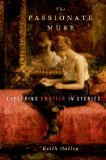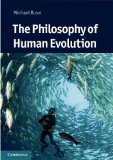new book – ‘A User’s Guide to Thought and Meaning’ by Ray Jackendoff
February 29, 2012
A User’s Guide to Thought and Meaning by Ray Jackendoff is now available in hardcover from Oxford University Press. The kindle ed. was released in January, as previously announced here.
Book description from the publisher:
Hailed as a “masterpiece” (Nature) and as “the most important book in the sciences of language to have appeared in many years” (Steven Pinker), Ray Jackendoff’s Foundations of Language was widely acclaimed as a landmark work of scholarship that radically overturned our understanding of how language, the brain, and perception intermesh.
A User’s Guide to Thought and Meaning is Jackendoff’s most important book since his groundbreaking Foundations of Language. Written with an informality that belies the originality of its insights, it presents a radical new account of the relation between language, meaning, rationality, perception, consciousness, and thought, and, extraordinarily, does this in terms a non-specialist will grasp with ease. Jackendoff starts out by looking at languages and what the meanings of words and sentences actually do. Finding meanings to be more adaptive and complicated than they’re commonly given credit for, he is led to some basic questions: how do we perceive and act in the world? How do we talk about it? And how can the collection of neurons in the brain give rise to conscious experience? He shows that the organization of language, thought, and perception does not look much like the way we experience things, and that only a small part of what the brain does is conscious. He concludes that thought and meaning must be almost completely unconscious. What we experience as rational conscious thought–which we prize as setting us apart from the animals–in fact rides on a foundation of unconscious intuition. Rationality amounts to intuition enhanced by language.
Ray Jackendoff’s profound and arresting account will appeal to everyone interested in the workings of the mind, in how language links to the world, and in what understanding these means for the way we experience our lives.
Google books preview:
See also: Video of author speaking on “Language, Meaning and Rational Thought” (11/10/11)







